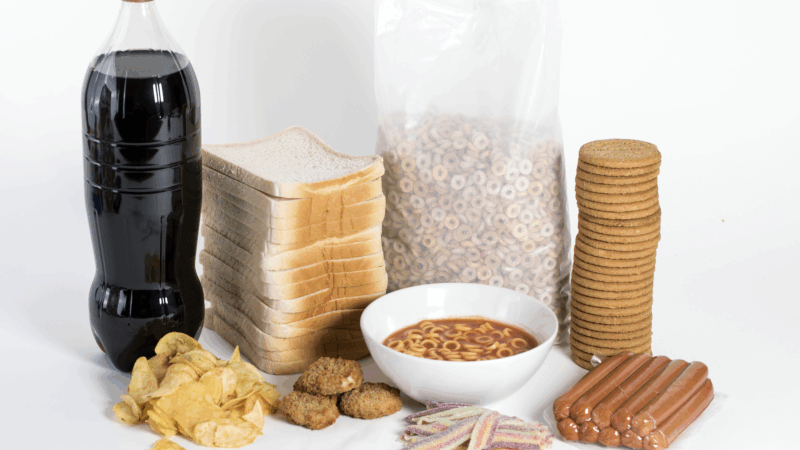Ultra-processed food consumption is down a bit, but still more than 50% of U.S. diet
The consumption of ultra-processed foods is on a slow decline, though most Americans — and especially children — are getting most of their calories from unhealthy, manufactured foods, according to new data from the Centers for Disease Control and Prevention.
The mean percentage of total calories consumed from ultra-processed foods (UFPs) eaten by everyone age 1 and older was 55%, during August 2021 and 2023, when the National Center for Health Statistics conducted its survey. The survey underscored a persistent difference by age; among those between the ages of 1 and 18, the mean consumption of UPFs was higher, 61.9% of calories. Those 19 and older consumed less, at 53%.
Cheap, convenient and tasty
The Trump administration has blamed ultra-processed food for many chronic diseases, including diabetes, and the increasing availability of UPFs has helped drive obesity rates worldwide.
But there is no standard definition of what constitutes an ultra-processed food, though they are generally energy rich foods with little nutritional value, containing added fats, sugars and chemicals to preserve their shelf life and make them very palatable. In short, they are manufactured to be cheap, convenient and tasty. Foods like sandwiches, including hamburgers, as well as snacks and sugary beverages made up a large portion of the ultra-processed foods consumed.
The trend in U.S. consumption over the past two decades has been a bit mixed. Consumption of UPFs fell for a couple years after 2013, then increased, and has been trending down slightly since this survey was last conducted in 2017-2018, according to the data brief on the study.
The study was conducted every two years since 1999-2000 until the cycle was interrupted during the pandemic, CDC spokesperson Brian Tsai wrote to NPR.
Health and Human Services Secretary Robert F. Kennedy Jr. wants to curtail the prevalence of ultra-processed foods in the American diet. Here is recent coverage from NPR on the topic:
US military used laser to take down Border Protection drone, lawmakers say
The U.S. military used a laser to shoot down a Customs and Border Protection drone, members of Congress said Thursday, and the Federal Aviation Administration responded by closing more airspace near El Paso, Texas.
Deadline looms as Anthropic rejects Pentagon demands it remove AI safeguards
The Defense Department has been feuding with Anthropic over military uses of its artificial intelligence tools. At stake are hundreds of millions of dollars in contracts and access to some of the most advanced AI on the planet.
Pakistan’s defense minister says that there is now ‘open war’ with Afghanistan after latest strikes
Pakistan's defense minister said that his country ran out of "patience" and considers that there is now an "open war" with Afghanistan, after both countries launched strikes following an Afghan cross-border attack.
Hillary Clinton calls House Oversight questioning ‘repetitive’ in 6 hour deposition
In more than seven hours behind closed doors, former Secretary of State Hillary Clinton answered questions from the House Oversight Committee as it investigates Jeffrey Epstein.
Chicagoans pay respects to Jesse Jackson as cross-country memorial services begin
Memorial services for the Rev. Jesse Jackson Sr. to honor his long civil rights legacy begin in Chicago. Events will also take place in Washington, D.C., and South Carolina, where he was born and began his activism.
In reversal, Warner Bros. jilts Netflix for Paramount
Warner Bros. says Paramount's sweetened bid to buy the whole company is "superior" to an $83 billion deal it struck with Netflix for just its streaming services, studios, and intellectual property.







